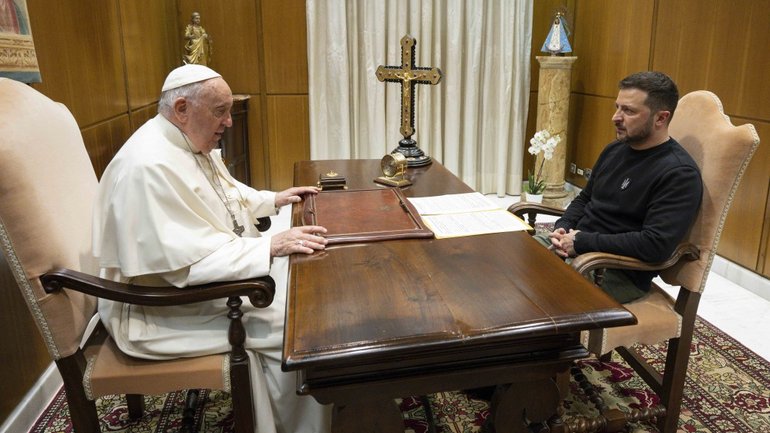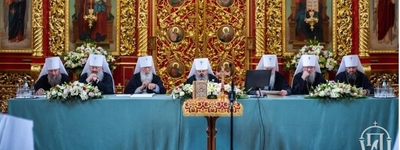Can Mediation Work?

During his visit to Rome last Saturday, May 13, during which he met with Pope Francis, Ukraine’s President Volodymyr Zelensky reportedly rebuffed the pontiff’s offer of mediation with Russia. “We do not need mediators,” he said. Italian journalist Marco Politi portrayed Zelensky’s conduct as tactless, arrogant, characterized by bad manners and bad faith. Ukraine, Politi implied, did not really want peace. He suggested that this was the fault of the United States, which opposes an international order in which it would not be the undisputed leader. Politi thus implied, insultingly, that Ukrainians are mere tools of US policy. (Marco Politi, “Zelensky voleva spingere nell’angolo il Papa ma la Santa Sede non è stupida,” Il Fatto quotidiano, May 15, 2023).
Could Vatican mediation between Russia and Ukraine work? Mediation is used where a direct confrontation between two opposed parties would be unproductive. The mediator negotiates separately with each party, bringing them gradually to a mutually agreeable position. Mediation can only succeed under certain conditions: there must be a genuine, bona fide dispute, and both sides must be prepared to obtain less than what they demand, come to an agreement, and put it into effect.
Commenting on the meeting between the pope and the president, American journalist John Allen compared Pope Francis’ attempt at mediation in the Russo-Ukrainian war to Pope Benedict XV’s failed peace-making efforts during World War I (Crux, May 14, 2023) (See Robert Moynihan, Letter No. 93, May 15, 2023, citing both Politi’s article and Allen’s.) That war had broken out in part because of interlocking treaties that, once they had triggered mobilization timetables, could not be stopped. National honor and imperial ambitions were certainly at stake. Nevertheless, the seven-point peace plan that Pope Benedict XV offered on August 1, 1917 might have worked, if all parties had trusted him and had been prepared to submit to binding arbitration and make concessions. World War I was like earlier, 19th-century wars, where there was a certain amount of room for diplomatic maneuvering and compromise. If war was a continuation of politics by violent means, politics could also be a continuation of war by peaceful means.
The Russo-Ukrainian war, however, is different from World War I or its 19th-century predecessors. It is more like World War II. That war had an ideological element. The chief protagonists, Nazi Germany and the Communist USSR, were motivated not only by the traditional motives of territory, prestige, wealth and power, but also by their respective ideologies. While one can make compromises about territory or economic resources, and even assuage honor and temper ambition, ideologies tend to have absolutist goals. Ideologically driven wars are therefore not amenable to mediation. Nazi Germany, for example, was committed to the enslavement of the “racially inferior” Slavs and the total destruction of the Jews, including several million in occupied Poland and the USSR. What could mediation have achieved? The destruction of “only” three million instead of six million Jews? As a Jew, Zelensky may have this precedent at the back of his mind when dealing with Vladimir Putin’s Russia. For Russia’s war is driven by its leadership’s ideology, which aims not only for Russian power and prestige, economic and territorial gain, but also for the total destruction of Ukraine as a state, a nation, and a people – a goal strikingly evidenced by both word and deed. In the face of such a threat, mediation is helpless.
There is, indeed, no bona fide “conflict” between Russia and Ukraine. When Russia invaded Ukraine in 2014, Ukraine had no outstanding claims against Russia. There was no demand which Ukraine could renounce or on which it could compromise, and thus no point in mediation. At the same time, Russia’s demand to end alleged persecution of a Russian-speaking minority and its proclaimed goal of “de-Nazification” were not based on reality, and thus not a possible subject of negotiation.
Even if mediation could bring about an agreed-upon solution, there is no guarantee that Russia would put it into effect. Past experience shows that it will renege on its promises whenever it finds this advantageous. Furthermore, no effective peace negotiations are possible as long as Russia remains in possession of Ukrainian territory, including the Crimea and the Donbas. Occupation is not peace; indeed, as experience has shown, it is not even the absence of violence.
One can only support Pope Francis’ desire for a just and lasting peace. But mediation is not the way. President Zelensky’s statement that “We do not need mediators” was not a rebuff to the pope or an insult to Vatican diplomacy. It was a simple statement of fact. When an aggressor is in the process of destroying his victim, mediation is worse than useless. To be sure, peace with Russia is possible. But tragically, it may have to be achieved in the same way that it was achieved with Germany in World War II.











